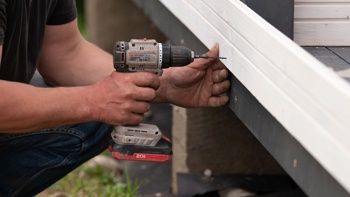
Hold on to your hats, New Zealand house prices are set to rise again in 2024 - or so say most market commentators.
But by how much?
Independent economist Tony Alexander is among the most optimistic pundits, tipping prices to jump by up to 10 per cent next year.
He also expects price rises to continue beyond next year.
“Welcome to the upward leg of the house price cycle. It usually runs for about six years, and we are now entering month six,” he said earlier in 2023.
However, Westpac and Kiwibank economists are forecasting 7-8 per cent rises, while analysts at CoreLogic expect slower, “patchy” growth around 5 per cent.
So what’s behind these predictions? Here are a few factors to keep an eye on in 2024.
Migration and demand for new-build homes
New Zealand has had 100,000-plus more people enter the country than leave over the past year.
That’s the highest surge in population growth in decades.
At the same time, fewer new homes are being built, with Alexander saying the number of building approvals for new houses has been steadily dropping since October last year.
“In an environment of strong population growth, this decline in new house supply can do only one thing to prices – push them higher,” he said this year.
Kiwibank chief economist Jarrod Kerr says New Zealand “will not build enough homes” for the influx of new migrants.
“It’s pretty clear this is the big story for next year.”
/cloudfront-ap-southeast-2.images.arcpublishing.com/nzme/C2ZMMGYJGVCPBHGH4VJHKHDYGM.jpg) Auckland house prices fell more by dollar value than any other region during the recent downturn. Photo / Alex Burton
Auckland house prices fell more by dollar value than any other region during the recent downturn. Photo / Alex Burton
Home loan interest rate rises
It’s been a wild ride in the housing market over the past 3-4 years and interest rates have played a key role.
When rates dropped to record lows in early 2020, it triggered a market boom as home buyers rushed to get loans in a frenzy that drove prices to record highs in 2021.
Then, when the Reserve Bank began raising rates to fight inflation, it put pressure on home buyers and led to 18 months of falling house prices.
Now most pundits believe interest rates have stabilised.
But interest rates are already high, with many Kiwis finding it difficult to pay back their home loans.
That pressure makes it unlikely there will be a surge of new buyers anytime soon, most commentators say.
Inflation and unemployment
Home loan interest rates are typically affected by inflation, but economists are undecided on which way inflation will track next year.
Kiwis are suffering under tough cost-of-living pressures, but Kiwibank’s Kerr believes the worst is behind New Zealand.
He tips inflation will dip below the Reserve Bank’s 3 per cent target early next year.
That could lead the central bank to cut the official cash rate by as early as May - a move that could bring lower interest rates to ordinary Kiwis and perhaps push house prices up, Kerr says.
But not everyone agrees. Westpac chief economist Kelly Eckhold tips inflation to remain stubbornly high all next year, meaning lower interest rates are not likely.
Employment is also important, with Kiwis needing to keep their jobs to be able to pay their home loans, CoreLogic’s chief property economist Kelvin Davidson says.
Unemployment rose slightly in the September quarter but remains relatively low.
/cloudfront-ap-southeast-2.images.arcpublishing.com/nzme/5377YS4KCVBH5A5EUMY4SB4AG4.jpg) A surge in migration is likely to see more people looking to buy and rent in cities like Wellington. Photo / Matteo Colombo
A surge in migration is likely to see more people looking to buy and rent in cities like Wellington. Photo / Matteo Colombo
Who will buy and sell?
First home buyers have been snapping up between 24 and 28 per cent of houses going on the market.
But policy changes by the new National-led Government will reintroduce investor-friendly tax measures, meaning first home buyers are likely to face more competition for houses.
Still, Davidson does not expect a surge of investors back into the market.
That’s because high interest rates and low rental yields are leaving many investors to make a weekly cash-flow loss on their properties as they typically spend $300-$400 each week paying off their mortgages, he says.
The number of homes selling
Davidson says the 65,000 homes listed for sale last year was the lowest in 40 years.
However, more homes are starting to come on the market offering choice to buyers.
That could be boosted by investors looking to sell more homes due to the bright-line test being reduced from 10 to two years, thus avoiding paying capital gains tax.
However, even if 10 per cent more homes are put up for sale, the number of listings would still be about 20,000 below the typical average of 95,000.
Take your Radio, Podcasts and Music with you









